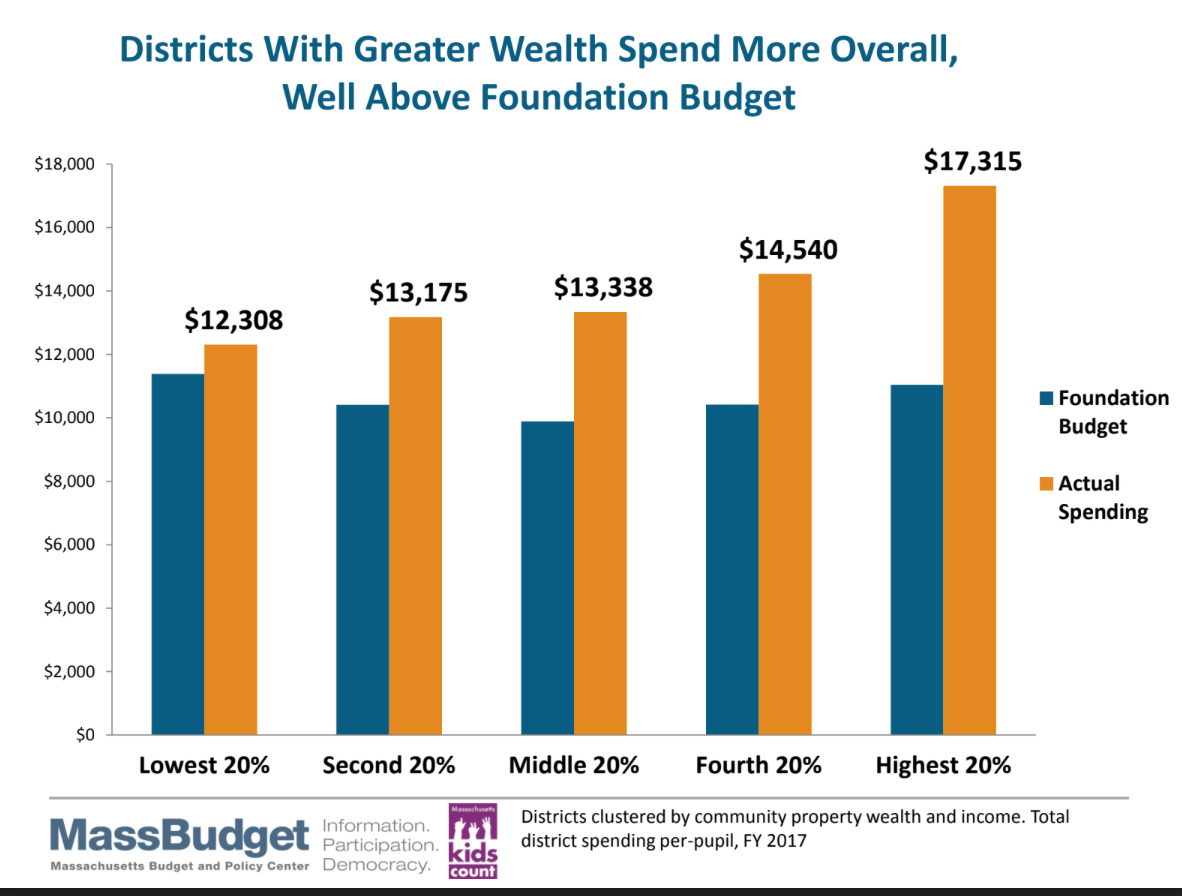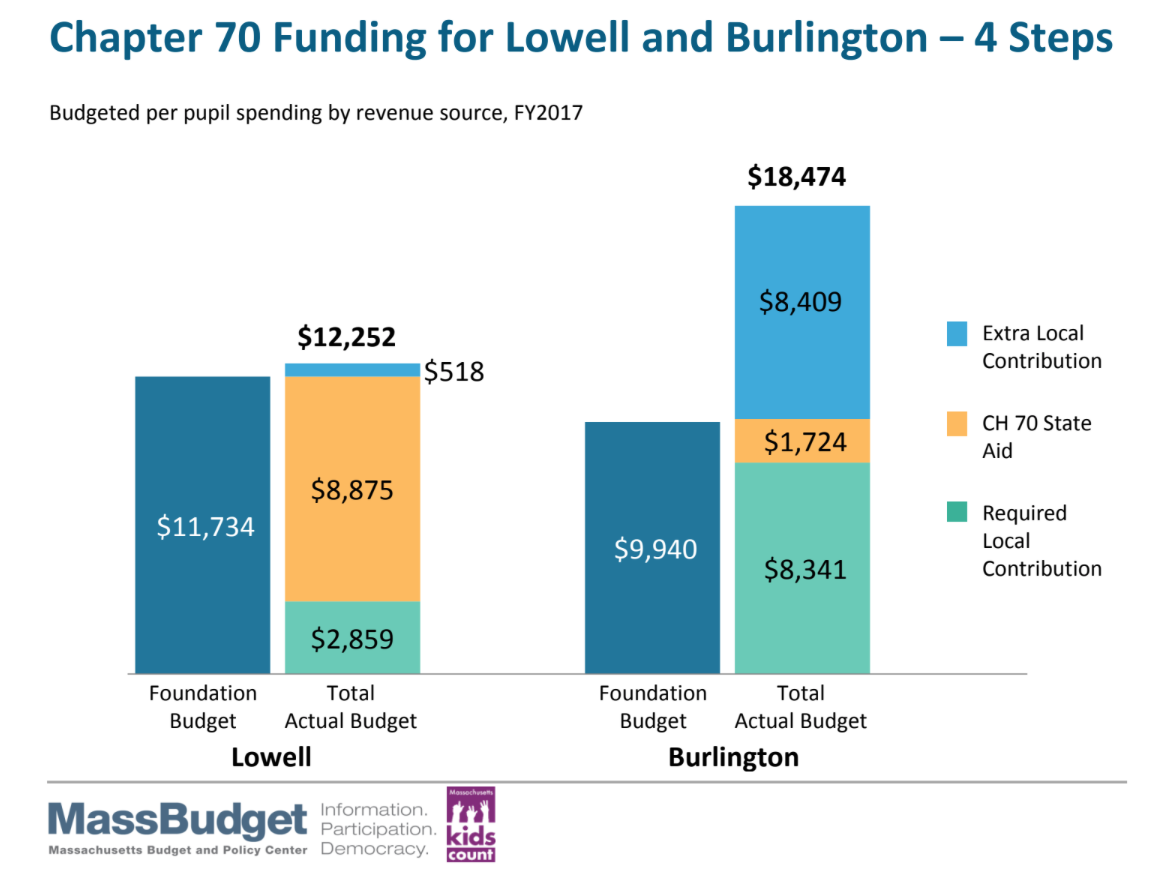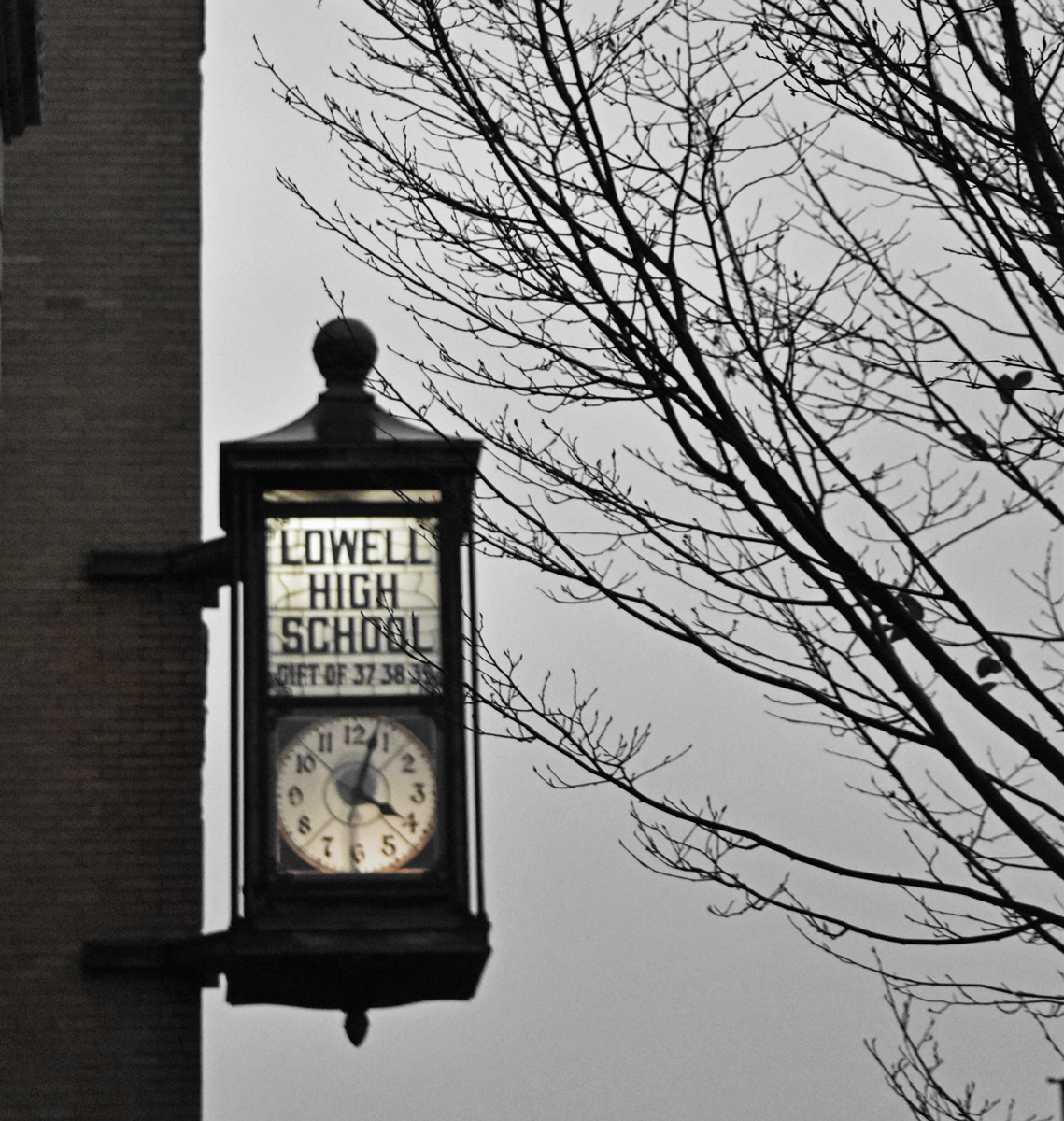It Isn't Just the Cuts
 Budget season is going full tilt in Lowell and the outlook is definitely not very palatable.
Budget season is going full tilt in Lowell and the outlook is definitely not very palatable.
The School Department is running on fumes: no K-8 libraries this past academic year, proposed cuts to fine arts positions, proposals to cut services for students in guidance, behavioral supports, Special Education. Who knows where it will end?
Well, here's where I get off:
I think a question should not be just about what services and positions will need to be cut. I think the big questions is this: Why isn't the Commonwealth of Massachusetts adequately funding schools so our children receive all of the services they need to succeed?
By all, I mean: why are schools going without libraries, or technology, or nurses, or social workers, or paraprofessionals, or class sizes that enable an educator to address the needs of the students in front of them in a consistent, thoughtful, reflective way? Why are these and other services that enable our English Language Learners, our Special Education students and our students living in trauma and poverty to be better supported on the chopping block?
Today, across Massachusetts, educators, parents, students, community members are gathering in both Boston and Springfield to SHOW our Legislators that we are not willing to accept the flimsy excuses that have left public school funding scratching for scraps for the last 25-plus years. We are showing up to let you all know IN PERSON that it is beyond time to fix the Foundation Formulas and that our Commonwealth needs to fund our schools so that all of our youngest citizens get an equitable and adequately funded public education.
So even though I could be doing about a million other things today, I will show up, not only for the Rally at 5, but also to engage any Legislator who will agree to speak with me about the importance of funding our future through supporting the Promise Act and the Cherish Act. This is for all the students I've taught, the ELLs, the SpED students, the children living in poverty - and for my baby granddaughter, who just might be able to attend a fully and adequately funded school when she enters Kindergarten five years from now if the Promise Act is passed this year.
And that is why I'll be attending today's Rally to Fund Our Future on the Common. Will you?




 We are about a week beyond the Foundation Budget Review Commission (FBRC) disappointment. Last evening, as I listened in to a conference call sponsored by Mass Education Justice Alliance (MEJA), this question was posed:
We are about a week beyond the Foundation Budget Review Commission (FBRC) disappointment. Last evening, as I listened in to a conference call sponsored by Mass Education Justice Alliance (MEJA), this question was posed:
 If a picture is worth a 1000 words, this one, courtesy of
If a picture is worth a 1000 words, this one, courtesy of  example: in neighboring Burlington, MA, the per pupil cost calculated $9,940. In Lowell, that base number is set at $11,734. Based on the economics of each community, the Commonwealth determined that Burlington's state aid be set at $1,724 leaving the remainder, $8,341, for the Town of Burlington to provide. Recognizing that Lowell's community economics are different from Burlington, the numbers look quite different: state aid is $8,875 and the City's required contribution is $2,859. In an effort the keep this "simple", which it is not, I'm ignoring the whole cash vs. "in kind services" debate.Burlington's per pupil costs are enhanced by the Town's ability to add $8,409 to what Massachusetts has determined is the cost of educating a student in that town. Lowell, with many more demands on its municipal budget, adds $518. So, in the end, Lowell is able to spend $12,252 on every school student (public and charter) while more affluent Burlington can allocate $18,474.This is not just a simple numbers game; it gets worse. Those per pupil determinations that the Commonwealth starts with are based on 1993 (yes, that is correct) formula calculations. So in 2018, the data determining how much each community is expected to expend and raise for each student is already 25 years out of date.The Foundation Budget Review Commission tackled this issue 2 years ago, but the recommendations were not implemented. It was not forgotten by everyone, however, and a refreshed bill, S.2525 unanimously passed the Massachusetts Senate last month. Now it's the Massachusetts House's turn. And this week, with some strong advocacy by Rep. Vega, House members are appealing to Speaker DeLeo to move this legislation out of the House Rules Committee and on to a floor for a vote.Locally, because state funding in education has been whittled away Lowell's kids are on the losing end of budget roulette: our K-8 students will no longer have school libraries, for example.As of this morning, only
example: in neighboring Burlington, MA, the per pupil cost calculated $9,940. In Lowell, that base number is set at $11,734. Based on the economics of each community, the Commonwealth determined that Burlington's state aid be set at $1,724 leaving the remainder, $8,341, for the Town of Burlington to provide. Recognizing that Lowell's community economics are different from Burlington, the numbers look quite different: state aid is $8,875 and the City's required contribution is $2,859. In an effort the keep this "simple", which it is not, I'm ignoring the whole cash vs. "in kind services" debate.Burlington's per pupil costs are enhanced by the Town's ability to add $8,409 to what Massachusetts has determined is the cost of educating a student in that town. Lowell, with many more demands on its municipal budget, adds $518. So, in the end, Lowell is able to spend $12,252 on every school student (public and charter) while more affluent Burlington can allocate $18,474.This is not just a simple numbers game; it gets worse. Those per pupil determinations that the Commonwealth starts with are based on 1993 (yes, that is correct) formula calculations. So in 2018, the data determining how much each community is expected to expend and raise for each student is already 25 years out of date.The Foundation Budget Review Commission tackled this issue 2 years ago, but the recommendations were not implemented. It was not forgotten by everyone, however, and a refreshed bill, S.2525 unanimously passed the Massachusetts Senate last month. Now it's the Massachusetts House's turn. And this week, with some strong advocacy by Rep. Vega, House members are appealing to Speaker DeLeo to move this legislation out of the House Rules Committee and on to a floor for a vote.Locally, because state funding in education has been whittled away Lowell's kids are on the losing end of budget roulette: our K-8 students will no longer have school libraries, for example.As of this morning, only  The Lowell High School project is, without a doubt, the biggest thing going in Lowell. I mainly stay out of the discussions about siting this project, mainly because, aside from being a taxpayer, I have very little skin in the game - no children/grandchildren in the school system. I do have an opinion, however, that is not based on tradition or the often-cited "that's the way we've always done it". That is one of the advantages of being a Blowellian.In my opinion, soliciting community support for this massive project has been ass-backwards from the start. My recollection is that, until there was some blowback from community groups like CBA and CMAA, there was very little effort to include all the stake-holders in the decision-making. Did the rush to get the project in front of Mass. School Building for project approval preclude the necessity for a referendum vote on where to put the school? I think it has.But while decisions and debate about where to put a new high school have become the focus point, there are other equally important issues that are getting pushed aside. One of those issues is the inadequate school funding support coming from the Commonwealth of Massachusetts.Thanks to cuts in the state budget and cuts coming from the Federal government, Lowell Public Schools needs to cut the previously approved 2018 budget by nearly $1 million. At the last School Committee meeting, there was plenty of debate surrounding the cutting of positions. Some of those proposed cuts are positions that directly impact students. The loss of anticipated Chapter 70 funding is somewhat complicated, but in my mind, these are the issues:
The Lowell High School project is, without a doubt, the biggest thing going in Lowell. I mainly stay out of the discussions about siting this project, mainly because, aside from being a taxpayer, I have very little skin in the game - no children/grandchildren in the school system. I do have an opinion, however, that is not based on tradition or the often-cited "that's the way we've always done it". That is one of the advantages of being a Blowellian.In my opinion, soliciting community support for this massive project has been ass-backwards from the start. My recollection is that, until there was some blowback from community groups like CBA and CMAA, there was very little effort to include all the stake-holders in the decision-making. Did the rush to get the project in front of Mass. School Building for project approval preclude the necessity for a referendum vote on where to put the school? I think it has.But while decisions and debate about where to put a new high school have become the focus point, there are other equally important issues that are getting pushed aside. One of those issues is the inadequate school funding support coming from the Commonwealth of Massachusetts.Thanks to cuts in the state budget and cuts coming from the Federal government, Lowell Public Schools needs to cut the previously approved 2018 budget by nearly $1 million. At the last School Committee meeting, there was plenty of debate surrounding the cutting of positions. Some of those proposed cuts are positions that directly impact students. The loss of anticipated Chapter 70 funding is somewhat complicated, but in my mind, these are the issues:
 All Members present for both meetings.
All Members present for both meetings.
 It's budget time in Lowell and the predictions look a bit grim. I won't second guess (most) of the reasoning behind proposed budget amounts, but I am dismayed that the belt tightening has been mind numbing. As a former educator in Lowell, even without children (or grandchildren) in the City Schools, I feel compelled to speak up. Those are "my" kids who are moving along through a terrific urban district and they deserve as many opportunities as we can provide. Here's a letter that I sent to our School Committee Members this morning. I plan to attend tonight's Budget Hearing (Butler School, 6:30 pm), LISTEN and then advocate for them as best I can. I hope many of you will do this as well. Let's work together to ensure that Lowell Public Schools meet our students' needs.
It's budget time in Lowell and the predictions look a bit grim. I won't second guess (most) of the reasoning behind proposed budget amounts, but I am dismayed that the belt tightening has been mind numbing. As a former educator in Lowell, even without children (or grandchildren) in the City Schools, I feel compelled to speak up. Those are "my" kids who are moving along through a terrific urban district and they deserve as many opportunities as we can provide. Here's a letter that I sent to our School Committee Members this morning. I plan to attend tonight's Budget Hearing (Butler School, 6:30 pm), LISTEN and then advocate for them as best I can. I hope many of you will do this as well. Let's work together to ensure that Lowell Public Schools meet our students' needs.